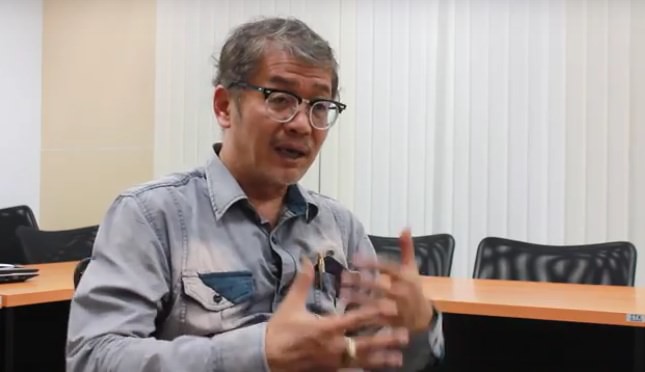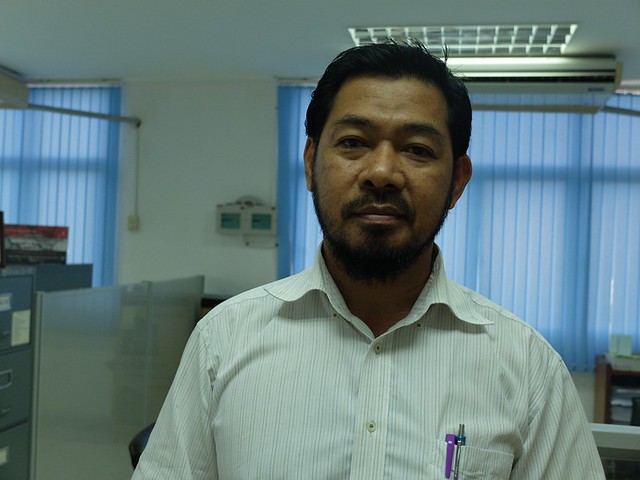Two experts have confirmed that although the Deep South is unsuited to receive ISIS influence, the state still should avoid situations which may cause conflict related to Islam in the area.
The Thai authorities last week revealed that three ISIS members from Indonesia, Malaysia and Singapore visited a mosque in Su-ngai Kolok, Narathiwat Province late last year, talking to religious leaders and youth there about ISIS and also making donations. This news as well as news about the bombings in Jakarta on 14 January has stirred up fears that the Islamic State, or ISIS, has extended its reaches to Thailand’s Deep South, where the population is predominantly Muslim. The group’s inroads into Southeast Asia have already affected Indonesia and Malaysia, and the big question now is whether Thailand’s Deep South will be also affected.
Two experts on the Deep South, Srisompob Jitpiromsri, Director of Deep South Watch, and Abdulroning Suetair, professor of the Department of Middle East studies at Prince of Songkla University, Pattani campus, give us further insight on this issue.
Srisompob: Deep South youth not welcoming to ISIS
Srisompob Jitpiromsri, director of Deep South Watch
Srisompob reaffirms that Deep South youth are not targets for indoctrination toward using violence or joining ISIS as many parties fear. This is because Deep South youth have educational opportunities as well as a space to express their ethnic and religious identity in Thailand, even if the violent attacks in France may have increased local Islamophobia. Also, youths in other Southeast Asian countries who might accept ISIS ideology operate on a different cultural platform from the one in Thailand’s Deep South.
The ISIS movement and the widespread publicizing of their ideology may sway some in the Deep South towards them, but the surrounding environment and culture do not encourage the growth of these ideas. In Indonesia, however, youth groups have travelled to Syria to cooperate with ISIS and have declared the establishment of the Southeast Asian ISIS Headquarters by Abu Sayyaf, an Islamic militant group based in the southwest Philippines. This, however, happens in a context that is different from Thailand’s Deep South.
The Deep South is unique in that it has sustained over a decade of prolonged violence, causing the majority of the locals to be fed up with the general idea of violence, preferring to work towards peaceful solutions. The past two years have seen the success of the peace process in developing a new environment where opportunities for solutions can arise. Some social and economic problems have also been resolved. Therefore, the chance of Deep South youths being swayed to use violence is small, although not zero.
Islam in the Deep South has also been largely influenced by the school of Imam al-Shafi‘i, which is largely conservative and contains no teachings that encourage the use of violence. These ideas have also over time blended with the local identity and culture, which also do not promote violence.
The ideologies of groups like BRN, PULO, or other separatist groups which use violence differ from that of ISIS. These groups tend to focus on nationalism, ethnicity, and history. Still, it cannot be denied that religious ideas also play a role in their ideologies, although they are expressed more strongly in nationalist terms.
It can be concluded that extremist religious ideologies do not have a large influence in the Deep South, especially for the youth. These youths may hold to the old school of Islamic thought (Islam with a mix of local beliefs and customs), but they do not support the use of violence. But even youths who hold to new schools of Islamic thought (influenced by Wahhabism) also tend to value reasoning and neutrality. Therefore, leanings toward violence are not very clearly manifested. The unique culture of the Deep South is also not one that promotes violence, since thought is not harshly suppressed.
So by looking at the foundations of the local society and culture, we can see that new, foreign influences in the area only have a large impact if they respond to internal problems. In other words, violence is used only when there is an impetus arising from internal conflict or societal disappointment. This applies, for example, to European youth, especially French youth who are disenfranchised in terms of opportunity, cultural diversity, and religious diversity. This leads disappointed youth towards extremism and violence.
Nevertheless, the state’s role in the Deep South by the past few administrations, including the current one, has been to open up the area more, providing opportunities in development, education, vocational training, and political participation. The state’s attempts to avoid the use of violent measures in resolving conflicts in favour of peaceful ones like talks, have also minimized the conditions for violence in the area, says Srisompob.
At the same time, Srisompob also believes that active groups or groups with views differing from the state’s will not need to use violence if there is a chance of resolving the situation through peaceful methods. During the past three to four years, the peace talks (both formal and informal) have done much to weaken the conditions for violence in the area by providing options and solutions towards opening up a neutral political space for many to participate in the dialogue. In an atmosphere where the peace processes are the main factor in resolving issues in the area, groups that use violence are not widely accepted.
Abdulroning Suetair: state enforcement of religious regulations will exacerbate the situation
Abdulroning Suetair, from the Department of Middle East Studies at Prince of Songkla University, Pattani campus
Abdulroning Suetair says the methods of ISIS and the Deep South separatist groups are very different. Both may use violence, but the chances of local groups joining up with ISIS are slim, due to the lack of various enabling factors.
“Unless there are new factors or conditions to enable local people to engage with ISIS or other Muslim communities overseas, such as religious factors (a condition experts are wary of, since ISIS grew out of religious factors), the Deep South will probably not resort to extremism. However, the government should not exacerbate the current situation, such as by building a Buddhist Park [in the area],” said Abdulroning.
Abdulroning went on to say that ISIS and extremist influence can be prevented through 1) removing all enabling conditions; 2) protecting against foreign influence, since there are as yet no individuals in the Deep South involved with ISIS, unlike in Malaysia, Indonesia, or the Philippines; and 3) strengthening local people’s ability to resist extremism through checks and balances and dialogues within and between communities.
Nevertheless, there is still the possibility that ISIS ideologies will take root in the region. This is possible through youths who use social media and are able to receive ideas in the absence of a formal organization, such as by receiving ideas online and immediately joining up.
When asked whether or not the recent increase in news coverage about ISIS in Thailand is related to the issue of building a Buddhist Park in Pattani, Abdulroning replied that the issues were unrelated. ISIS has seemingly changed tactics, from a strategy limited to Iraq and Syria to one not limited by geography. The Thai state is keeping a close eye on the situation, said the professor.
“If you ask me why we have to have preventive measures against ISIS, I would say that many of ISIS’ methods conflict with the teachings of Islam. It will be dangerous if this influence comes into the region. ISIS wants to make their name heard through the use of violence,” concluded Abdulroning.




